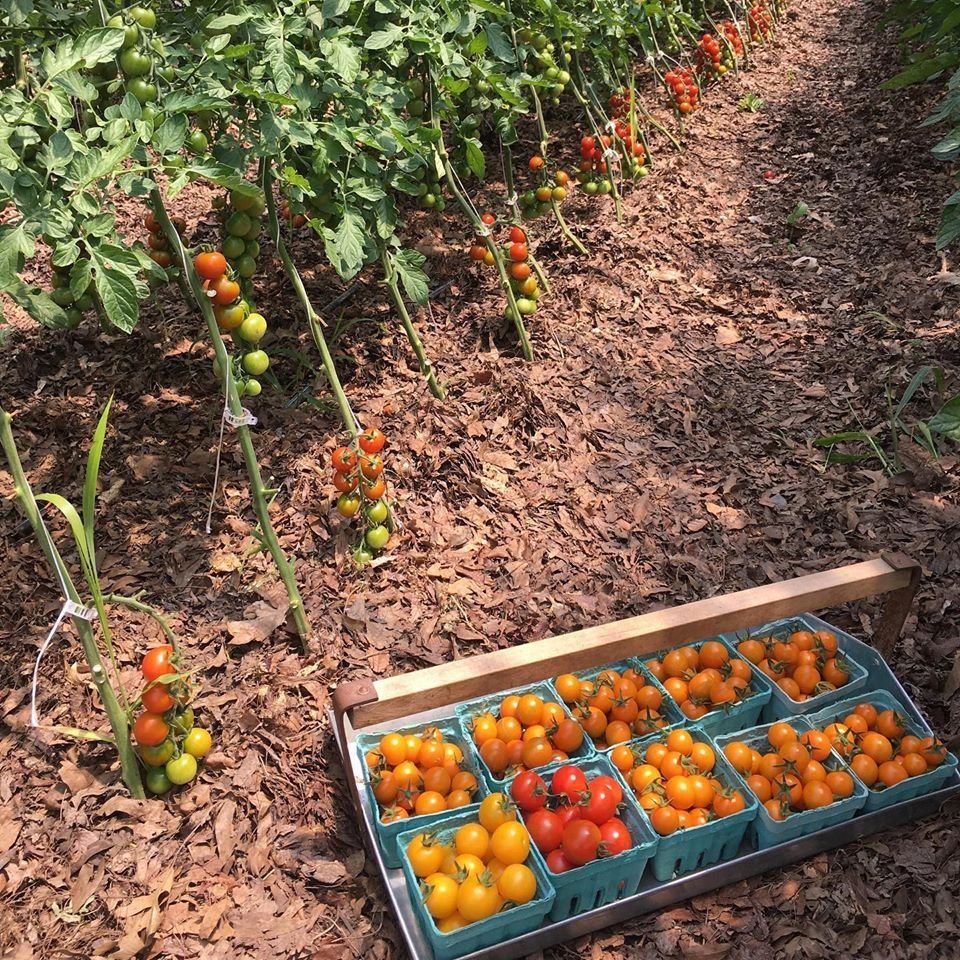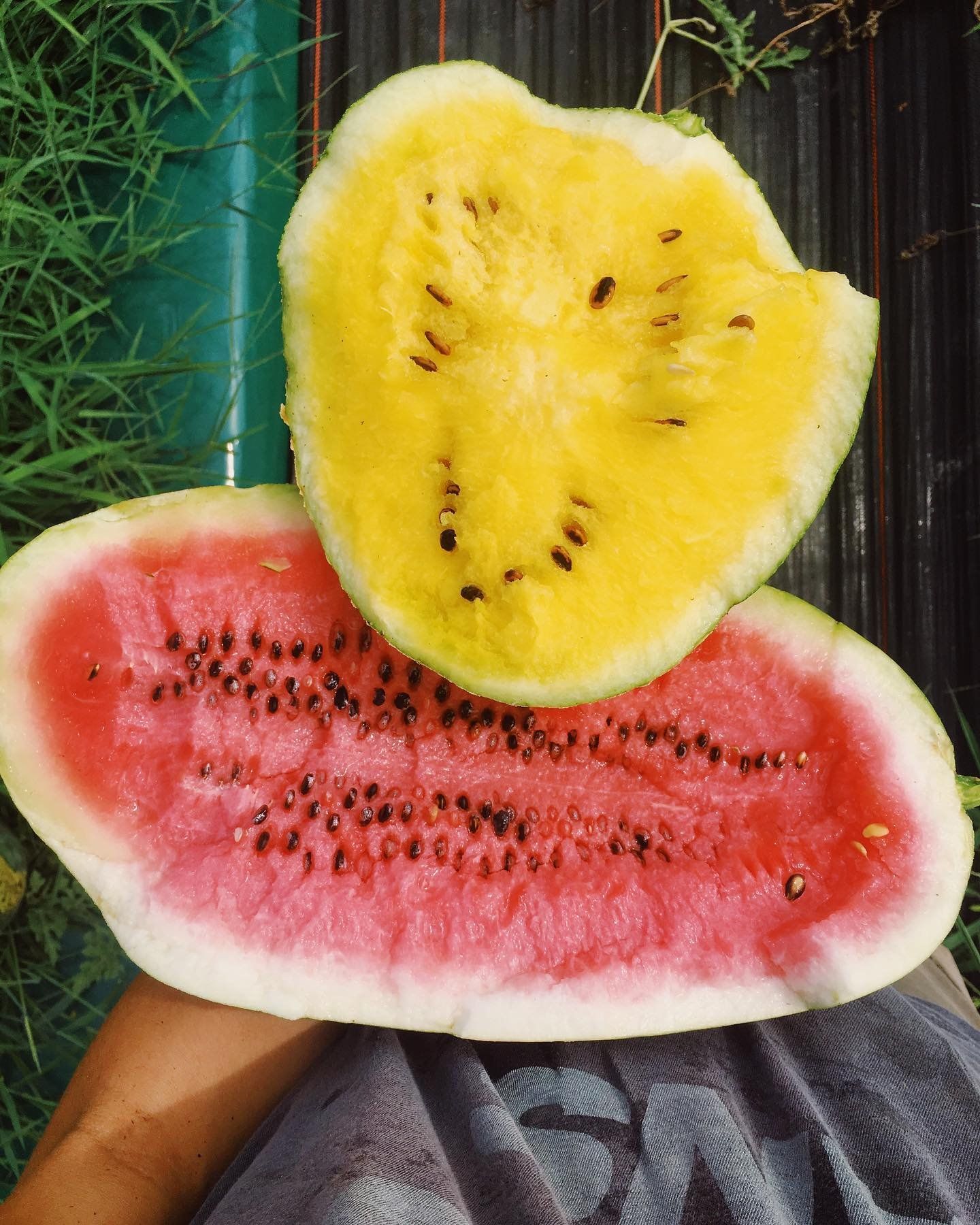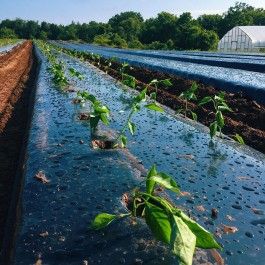Happy (hot) Friday, Farm-ily!
We’ve seen some headlines this week that the DC Metro area is breaking records for the longest hot streak. Today is the 15th day in a row at 90 degrees or above. The Farm office is littered with electrolyte packets and sunscreen. Ice cream suddenly seems like a sensible lunch, and I may be guilty of lingering beneath the sprinklers set up around the native plants at the Farm Stand.
We’ve officially hit the portion of the season where we shift our schedule and begin work at 7 AM before the full power of the sun hits the fields. Those early mornings aren’t just easier for our crew, they’re healthier for our harvests. Once we’ve cut kale or pulled beets, it’s imperative that we move them out of direct sunlight and cool them as quickly as possible to preserve their quality. Most of the time, this means immediately washing or submerging them in cold water to remove the field heat before their final destination in our coolers. Harvesting before the heat of the day means less heat to remove before storage. Transplanting is another activity best undertaken in the early morning hours, since hot, dry soil isn’t a kind welcome for tender seedlings.
All through spring, we waited for warm sunlight to coax our crops into growing bigger, faster. Now, we do everything we can to protect those same crops from excessive heat. We chose wisely when we bought seeds over the winter, knowing that July and August in Northern Virginia can get downright steamy. The crops and cultivars we select are those that have been heat-tested and are proven to tolerate summers like ours. Okra, for example, originated in Ethiopia and feels right at home in this weather. Tomatoes all hail from the South American sub-tropic region, but Sungolds and San Marzanos are especially well adapted to prolonged heat (and a big favorite with many of you).
With the right seeds in the ground, we rely on tricks of the trade to regulate soil temperatures to the best of our ability. The black plastic fabric you see in the fields in many of our spring and fall photos traps heat to nurture plants before the height of summer; now, we’ve traded it out for shade cloth to drop the temperature a degree or two and keep moisture in. Irrigation is another key to helping plants beat the heat. Consistent, even moisture, like that supplied by drip tape, reduces soil temperature on contact and also supports transpiration by the plants. Transpiration is a fancy word for plant ‘sweat’! It’s also a natural by-product of processes that move nutrients from the roots to the shoots.
In the hottest part of the day today, we gather in the shade of the pack shed and jump at the chance to organize inventory in the coolers. Packing CSA boxes together in the afternoon hours is a welcome respite accompanied by cool breezes and camaraderie. It’s hot, but we can stand the heat. We love what we do!
Eat well and be well,
Ashley, Collin, John, Lex, Alexandra, Rory, Nate, James, and the hens, hogs, and dogs
Meal Plan Week #8
- Get off to a bright start with Carrot Breakfast Hash with your Farm eggs.
- You can grill anything, especially these Cilantro Lime Sweet Potatoes.
- Garlic Roasted Cherry Tomatoes are easy and simple. You can take it just a step further and make this simple Cherry Tomato Sauce, or skip the heat altogether and put them in White Bean Salad.
- I shared this Summer Squash Pasta Bake to our CSA Facebook group (Friends of Willowsford Farm, in case you haven't joined yet!) and I'll share it again here because its just that good.
- Dress up your beans for Green Bean Romesco.
- Try this Carrot, Beet, and Apple Salad to pack a two veggie punch.
**Pastured Meat shareholders this week can expect an assortment of
chicken breasts and tenders, lamb sausage, pork chops, and ground beef.**





